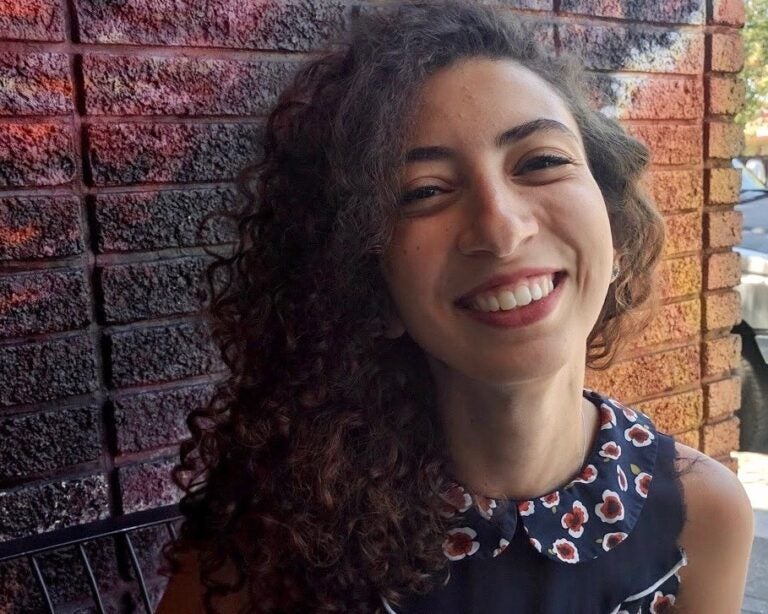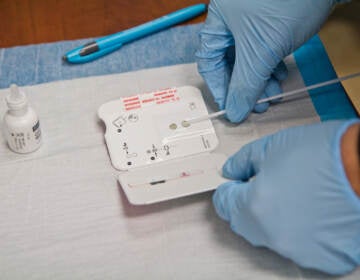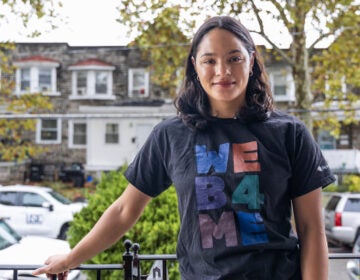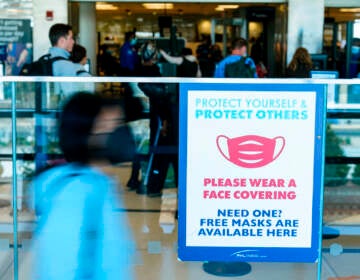Detective, social worker, telemarketer: Contact tracers wear many hats
Meet one of Philadelphia's contact tracers, the city workers who play critical role for understanding where and how fast COVID-19 is spreading — and for saving lives.
Listen 15:21
Ranem Atia is a contact tracer for the Philaderlphia Health Department. (Photo courtesy of Ranem Atia)
Ranem Atia works as a contact tracer and case investigator for the Philadelphia Department of Health, playing a critical role for understanding where and how fast COVID-19 is spreading and ultimately, for saving lives.
It’s not an easy job. To do this work effectively, Ranem and her fellow contact tracers need to be be good detectives, social workers and telemarketers. She takes us behind the scenes to explain how she breaks the news when someone tests positive and how she builds trust with the people she follows through their quarantines.

Hear the whole story on The Why
Interview Highlights
On what her job entails
I call people that have been in contact with someone that tested positive for COVID-19. I make sure that they’re aware that they were in contact with someone who had COVID-19, tell them that they need to quarantine for 14 days since their contact with that person and then help them with any resources to help them quarantine properly. They have issues with how to get food? I give them resources for that. I help them find their closest testing site if they need to or if they want to get tested for COVID- 19. It’s one part gathering information from them, but mostly just making sure that they are able to quarantine properly for the 14 days, as well as just sign them up for daily symptom checks so we can track what new symptoms they’re getting. And also give them the option to contact us if they have any questions …
A lot of people, when they get the call … it’s a strange number. So they’re like, “OK, who are you? Like, prove to me you’re from the Department of Public Health.” I send them an email. I’m like, “OK, see, this is me, like Phila.gov, I’m here” … I always say like, “I promise I’m never going to ask for your social security number or for any like banking information.” And I always then give them the option … you do not have to answer all the questions that I ask you.
On how she tells people they have tested positive
There are people who whose initial reaction is very, very shocked. Or there are people who are like, “Yes, I know. I’ve been feeling bad for a couple of days, I assumed that I had it.” I know one of my colleagues had an experience where they, after they told them they tested positive, the person was like, “You just told me I tested positive. I can’t continue this interview right now. Please call me back later.” I think these kind of investigations require a lot of like empathy, a lot of understanding. It is a form of trauma.
On cultivating relationships with the people she speaks to
I … have several contacts that I call them every day and those … are the ones that after the 14 days, the last day, you’re like, “We did it!”
I am an Arabic speaker, so I get a lot of Arabic cases and contacts. So this family that I had was a big Arabic-speaking family. I called them for 14 days — they never missed the call. I would go down the names of the children and make sure that none of them are experiencing any symptoms. And then by, like, the third day, it started being like, “We’re just having dinner. Come over and eat!” Because you’re talking to someone every single day. Even if it’s just like a short interaction, it’s still a bond.
WHYY is your source for fact-based, in-depth journalism and information. As a nonprofit organization, we rely on financial support from readers like you. Please give today.






